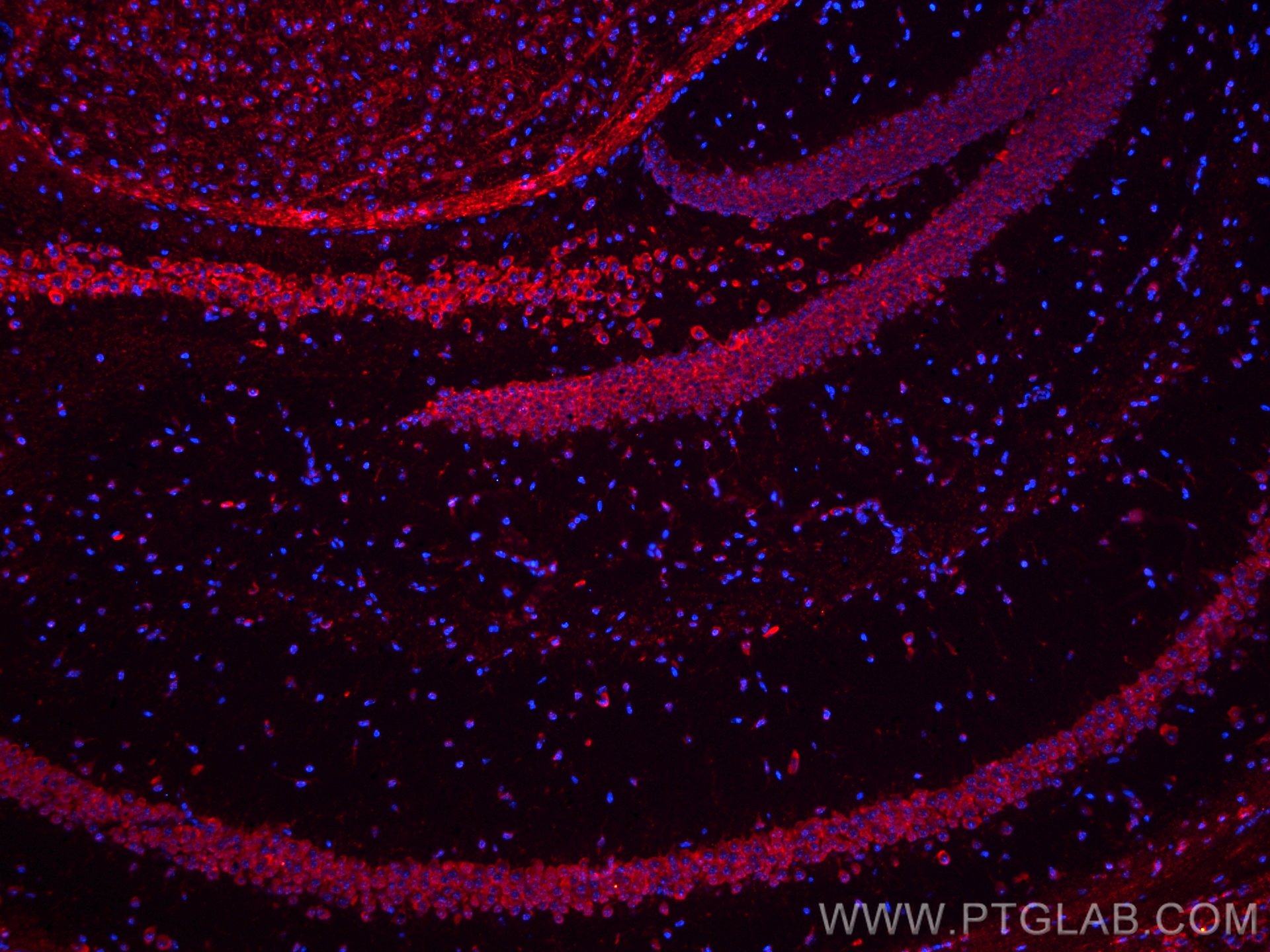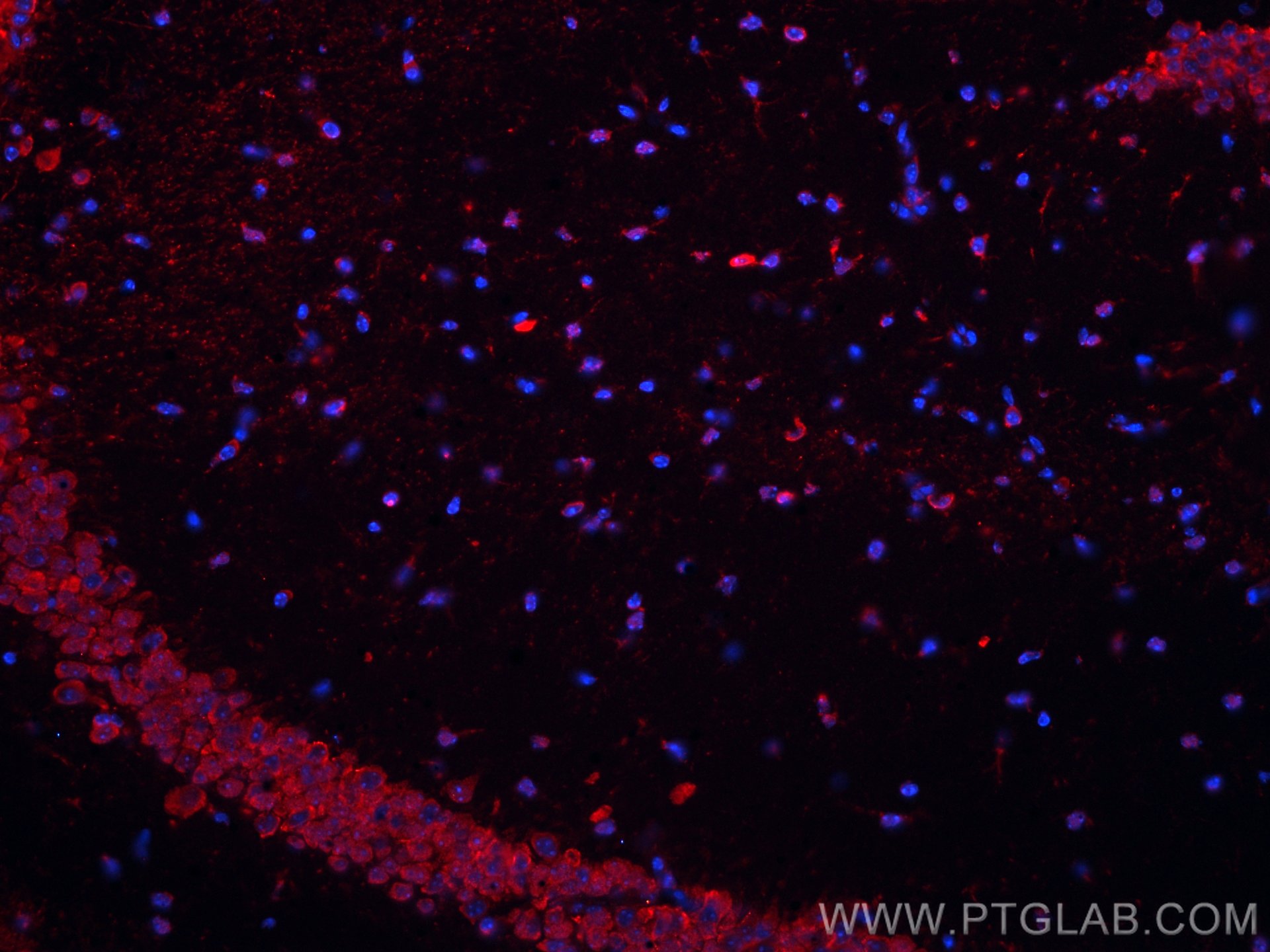CoraLite®594-conjugated MAOB Monoclonal antibody
MAOB Monoclonal Antibody for IF
Host / Isotype
Mouse / IgG1
Reactivity
human, mouse
Applications
IF
Conjugate
CoraLite®594 Fluorescent Dye
CloneNo.
2B12F3
Cat no : CL594-66107
Synonyms
Validation Data Gallery
Tested Applications
| Positive IF detected in | mouse brain tissue |
Recommended dilution
| Application | Dilution |
|---|---|
| Immunofluorescence (IF) | IF : 1:50-1:500 |
| It is recommended that this reagent should be titrated in each testing system to obtain optimal results. | |
| Sample-dependent, Check data in validation data gallery. | |
Product Information
CL594-66107 targets MAOB in IF applications and shows reactivity with human, mouse samples.
| Tested Reactivity | human, mouse |
| Host / Isotype | Mouse / IgG1 |
| Class | Monoclonal |
| Type | Antibody |
| Immunogen | MAOB fusion protein Ag17918 |
| Full Name | monoamine oxidase B |
| Calculated Molecular Weight | 520 aa, 59 kDa |
| Observed Molecular Weight | 59 kDa |
| GenBank Accession Number | BC022494 |
| Gene Symbol | MAOB |
| Gene ID (NCBI) | 4129 |
| RRID | AB_2919948 |
| Conjugate | CoraLite®594 Fluorescent Dye |
| Excitation/Emission Maxima Wavelengths | 588 nm / 604 nm |
| Form | Liquid |
| Purification Method | Protein G purification |
| Storage Buffer | PBS with 50% Glycerol, 0.05% Proclin300, 0.5% BSA, pH 7.3. |
| Storage Conditions | Store at -20°C. Avoid exposure to light. Stable for one year after shipment. Aliquoting is unnecessary for -20oC storage. 20ul sizes contain 0.1% BSA. |
Background Information
The MAOB gene encodes a 520-amino acid protein with a molecular mass of 58.8 kD and shows 70% amino acid identity to MAOA. MAOA and MAOB are present in the outer mitochondrial membrane in the central nervous system and peripheral tissues.A comparison of highly purified human placental MAOA and human liver MAOB revealed that the A form of the enzyme is larger by 2 kDa and only one potential N-glycosylation site exists in each protein, with each site in a different relevant position(PMID:3387449).
Protocols
| Product Specific Protocols | |
|---|---|
| IF protocol for CL594 MAOB antibody CL594-66107 | Download protocol |
| Standard Protocols | |
|---|---|
| Click here to view our Standard Protocols |



